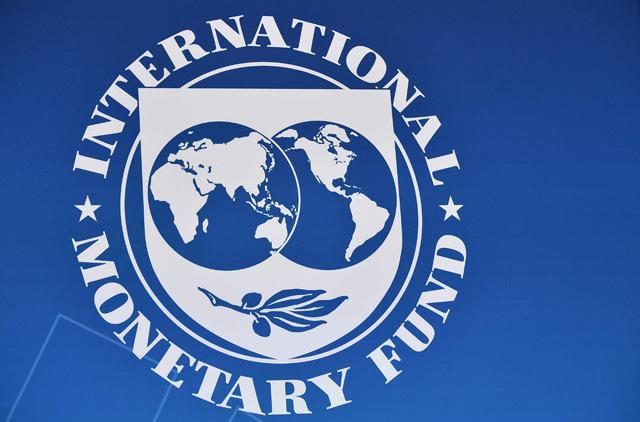You are here
IMF slashes Mideast growth projections over Iran sanctions
By AFP - Jul 23,2019 - Last updated at Jul 23,2019

This file photo taken on April 11, shows the seal of the International Monetary Fund at IMF headquarters in Washington, DC (AFP photo)
DUBAI — The International Monetary Fund (IMF) on Tuesday slashed its economic growth forecast for the Middle East and North Africa to the worst level in more than a decade over Iran sanctions and regional unrest.
In its World Economic Outlook update, the global lender projected economic growth for the Middle East, North Africa, Afghanistan and Pakistan this year would be 1 per cent, its worst since the IMF put them in one group in 2009.
The downgrade, the fifth in a year, is a half percentage point lower than its April projection.
The reduction is in large part due to a change in the IMF's forecast for Iran's growth "owing to the crippling effect of tighter US sanctions", the lender said.
"Civil strife across other economies, including Syria and Yemen, add to the difficult outlook for the region."
The price of oil, the main driver for revenues in the region, will also impact growth, the IMF added.
In 2018, the region saw 1.6 per cent growth, down from 2.1 per cent in the previous year.
The IMF in April projected Iran's economy will shrink by a steep 6 per cent this year, its worst performance since it contracted by 7.7 per cent in 2012.
The new report provided no updated figures on the Iranian economy, the second largest in the region behind Saudi Arabia, but other reports predicted a deeper recession in the Islamic republic.
One report jointly prepared by the London-based Institute of Chartered Accountants in England and Wales and Oxford Economics, released early this week, said Iran's economy is expected to shrink by 7 per cent this year.
The report also predicted regional growth to be just 0.6 per cent due to Iran sanctions and instability in the region.
US sanctions on Iranian oil exports were renewed in May and aim to halt Tehran's overseas crude sales, which provide key revenues to the Islamic republic.
The IMF also attributed the lower growth projections to rising US-Iran tensions centred on recent incidents in the Gulf and unrest in several Arab nations.
"Civil strife in many countries raises the risks of horrific humanitarian costs, migration strains in neighbouring countries, and, together with geopolitical tensions, higher volatility in commodity markets," the IMF said.
The IMF raised its forecasts for Saudi economic growth this year by 0.1 percentage points, to 1.9 per cent, and to 3 per cent in 2020.
It attributed the boost to the development of the kingdom's non-oil-related sectors.
The world's largest oil exporter has substantially cut power and fuel subsidies as well as imposed fees on expatriates and a 5-per cent value added tax as part of a reform programme to decrease dependence on oil.
Related Articles
DUBAI — The International Monetary Fund (IMF) on Tuesday raised its 2016 growth forecast for the Middle East and North Africa after a reboun
DUBAI — Saudi Arabia's gross domestic product (GDP) will shrink by 6.8 per cent this year, its worst performance since the 1980s oil glut, a
The International Monetary Fund (IMF) has lowered its economic growth forecasts for most Arab countries over unrest in the region but said growth would remain generally strong in the oil-rich Gulf states.












